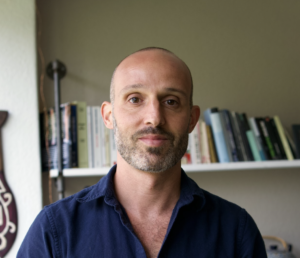
Title: Breaking Indecision in Multiagent, Multioption Dynamics
Abstract: How does a group of agents break indecision when deciding about options with qualities that are hard to distinguish? Biological and artificial multiagent systems, from honeybees and bird flocks to bacteria, robots, and humans, often need to overcome indecision when choosing among options in situations in which the performance or even the survival of the group is at stake. Breaking indecision is also important because in a fully indecisive state, where agents are not biased toward any specific option, the agent group is maximally sensitive and prone to adapt to inputs and changes in its environment. Here, we develop a mathematical theory to study how decisions arise from the breaking of indecision. Our approach is grounded in both equivariant and network bifurcation theory. We model decision from indecision as synchrony-breaking in influence networks in which each node is the value assigned by an agent to an option. First, we show that three universal decision behaviors, namely, deadlock, consensus, and dissensus, are the generic outcomes of synchrony-breaking bifurcations from a fully synchronous state of indecision in influence networks. Second, we show that all deadlock and consensus value patterns and some dissensus value patterns are predicted by the symmetry of the influence networks. Third, we show that there are also many “exotic” dissensus value patterns. These patterns are predicted by network architecture but not by network symmetries through a new synchrony-breaking branching lemma. This is the first example of exotic solutions in an application. Numerical simulations of a novel influence network model illustrate our theoretical results.
Bio: Dr Alessio Franci received his Laurea Specialistica Degree in Theoretical Physics from the University of Pisa in 2008 and his PhD in Physics and Control Theory from the University of Paris Sud 11 in 2012. Between 2012 and 2015 he was a postdoctoral researcher at the University of Liege and at INRIA Lille and a long term visiting researcher at the University of Cambridge. Between 2015 and 2022 he was professor in the Math Department of the National Autonomous University of Mexico. Since 2023 he has been professor in the Department of Electrical Engineering and Computer Science of the University of Liege. His research is interdisciplinary but the central focus is on the control-theoretical and computational principles needed to understand and design biological and bio-inspired intelligent behaviors.